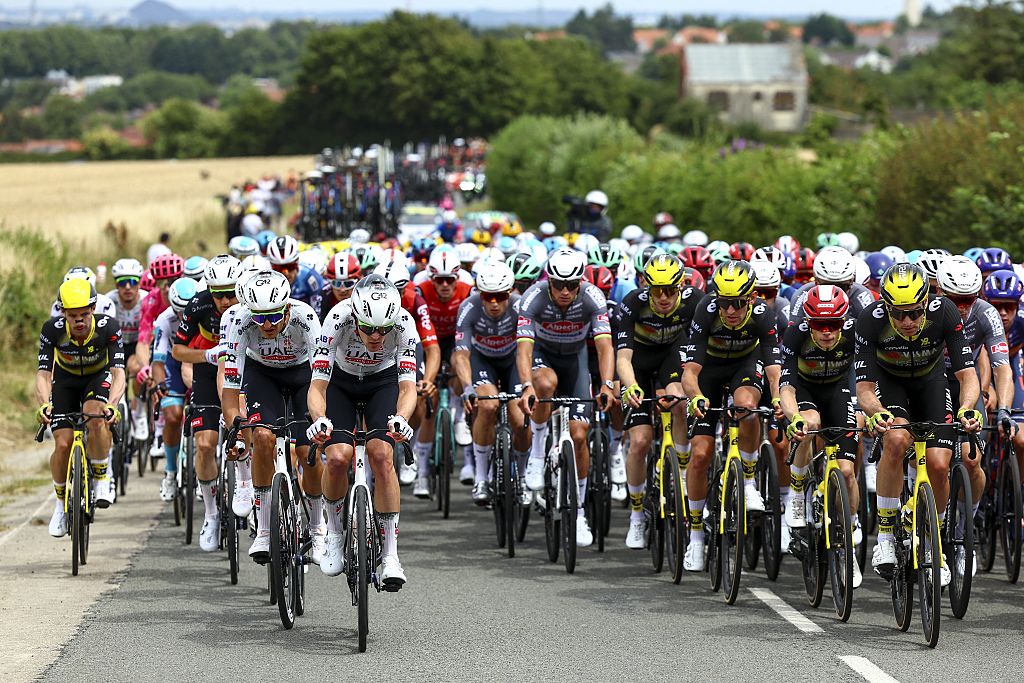Evenepoel and Pogacar headline Clásica San Sebastián - Preview
Van Aert absent from Saturday's hilly Basque Country Classic
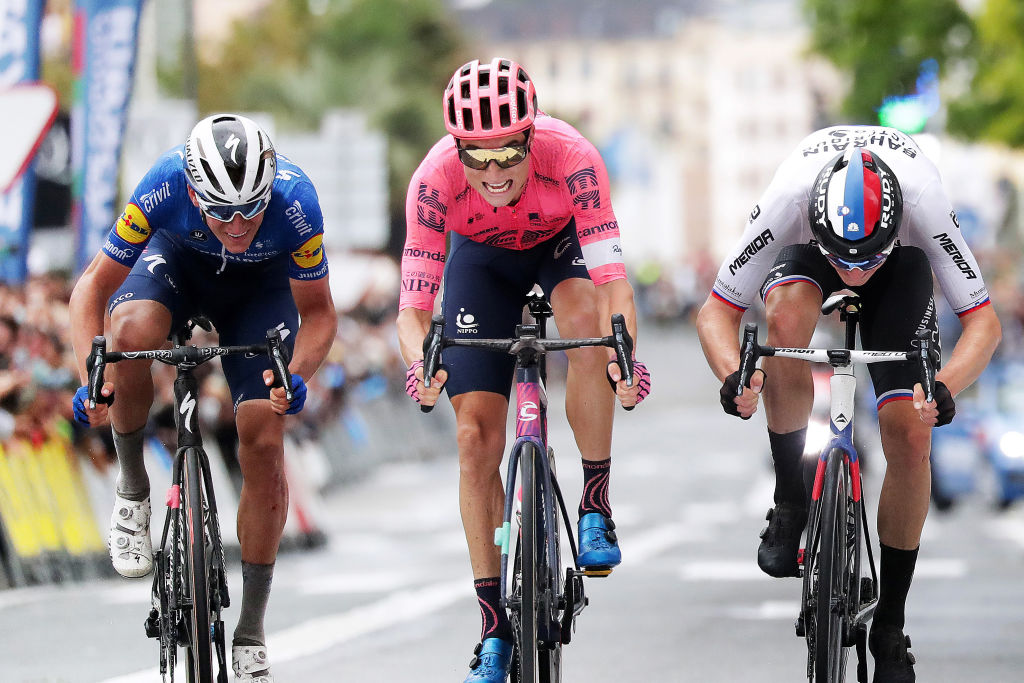
The Clásica San Sebastián is a prestigious summer fixture of the WorldTour calendar, a hard, hilly race suited to lots of different riders.
As ever, the contenders are split between those looking to wring out the last traces of energy and fitness after the Tour de France, and those who've been largely dormant since the Giro d'Italia so are clicking into gear ahead of the Vuelta a España and the late-season Classics.
It is a concoction that makes for an open-ended affair and an aggressive and unpredictable Saturday afternoon of racing in the Basque Country.
The Clásica – known as the Donostiako Klasikoa in native Basque tongue – is one of the most gruelling one-day races with a succession of steep climbs around San Sebastián and Irún, up on the northern coast of Spain by the French border.
The riders will tackle an opening loop and then head for the main climbs of Jaizkibel and Erlaitz, before the finale of the short but steep Murgil.
Last year, Neilson Powless (EF Education-EasyPost) sprinted to victory from a leading quartet, with the title typically coming down to a small group, if not a solo winner.
The contenders
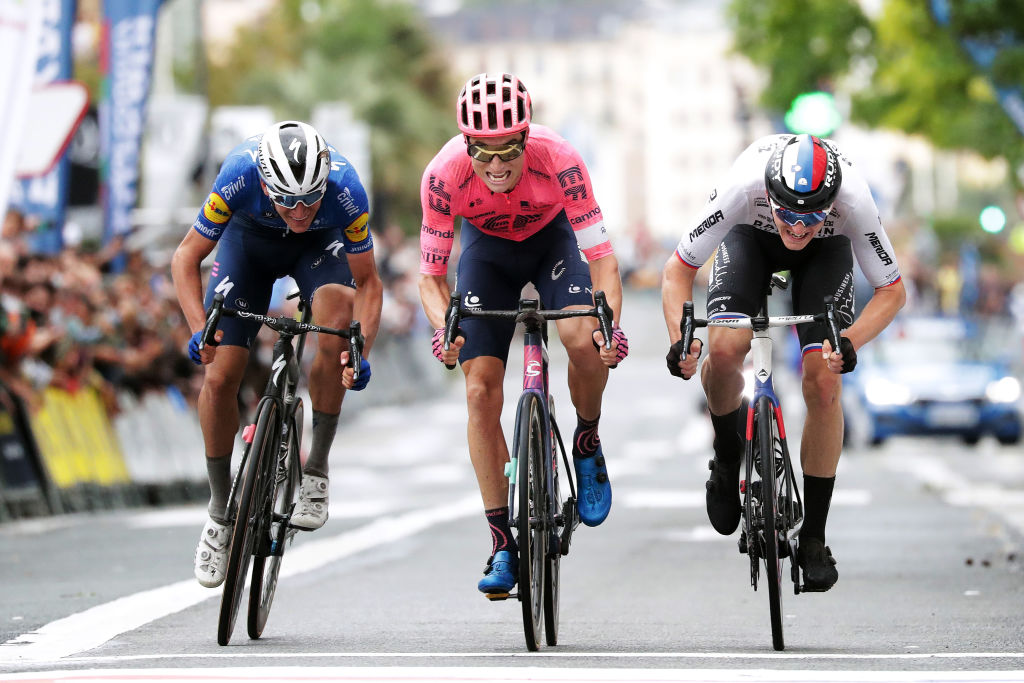
As ever, there'll be a strong contingent of Tour de France finishers, the headline name being that of Tadej Pogačar (UAE Team Emirates), second overall in Paris.
The latest race content, interviews, features, reviews and expert buying guides, direct to your inbox!
The Slovenian has decided against riding the Vuelta a España but will be hungry as ever for a victory before he looks to the late-season one-day races, including the World Championships in Australia.
Last year's winner Powless is also expected to race, as is 2016 winner Bauke Mollema (Trek-Segafredo), and a top-10 Tour finisher in Romain Bardet (Team DSM). Wout van Aert (Jumbo-Visma) was due to ride but the team said on Thursday he has a cold and so will only ride two criteriums before taking a break.
As for those who aren't coming from Paris, all eyes will be on Remco Evenepoel (QuickStep-AlphaVinyl) ahead of his much-anticipated Vuelta a España debut.
The Belgian is scrutinised wherever he goes and, before a key test of his future Grand Tour prospects at the Vuelta, he'll be answering questions of whether he's up to that test.
Such is life for the young Belgian sensation, whose first major victory as a professional came at this very race in 2019, when he was just 19 years of age. Evenepoel will take full command of QuickStep in the absence of world champion Julian Alaphilippe, who contracted COVID-19 at this week's Tour de Wallonie.
Simon Yates (BikeExchange-Jayco) is arguably the pre-race favourite and thrives at these kind of races. He hit the ground running on his post-Giro return to racing this week with a solo win at the Ordiziako Klasika.
Other big names coming back to life after the Giro include the maglia rosa winner Jai Hindley (Bora-Hansgrohe), as well as veteran Vincenzo Nibali (Astana Qazaqstan) and local favourite Mikel Landa (Bahrain Victorious).
And how could we forget Alejandro Valverde (Movistar), twice the winner in 2008 and 2014, and four more times a podium finisher. At 42, this is his career swansong, but how desperately his team could do with some UCI points as they slip further into the WorldTour relegation battle.
The route
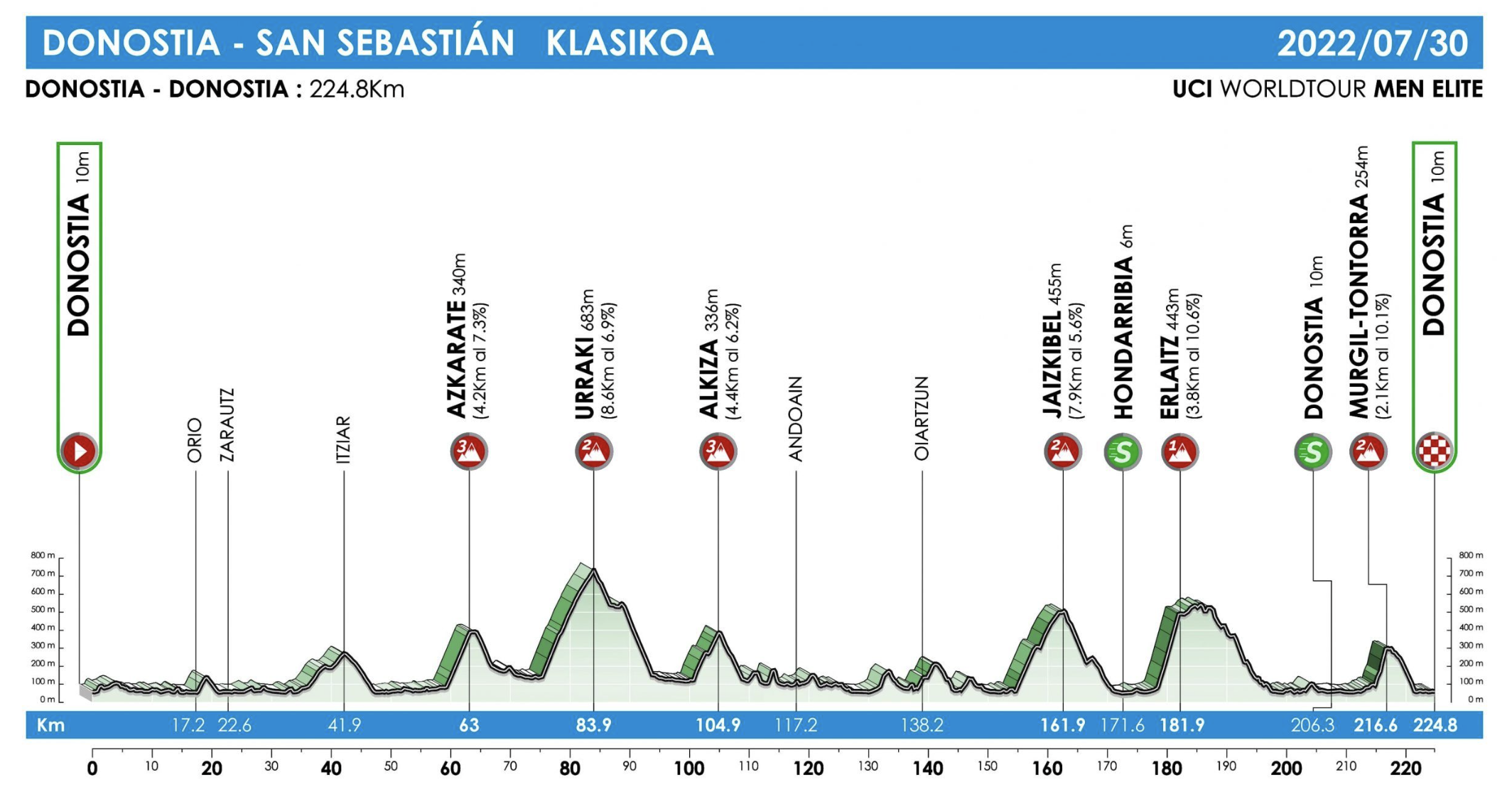
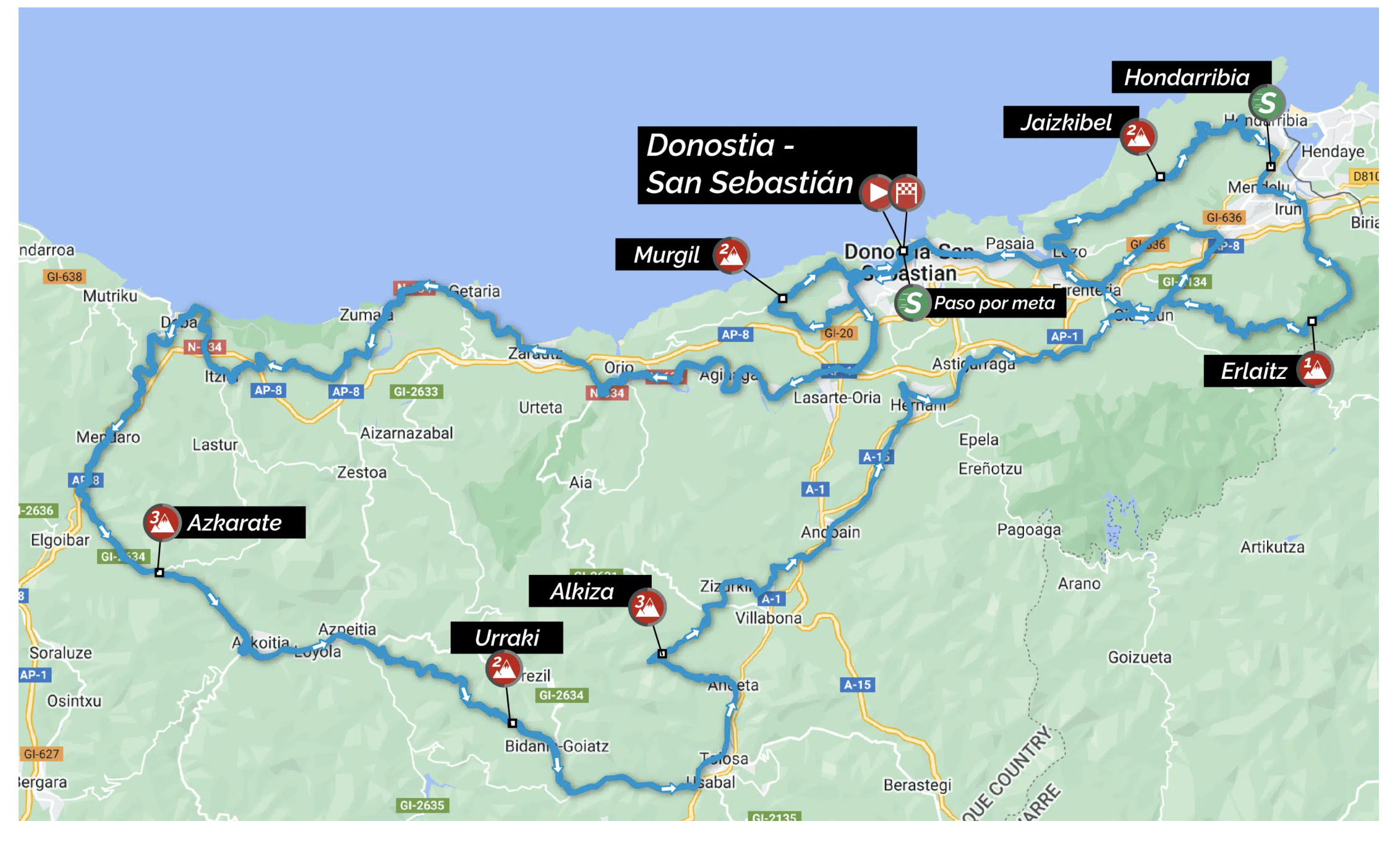
The route for the 41st edition of the race will take place on a near-identical course to last year's, with six climbs on the 224.8km course starting and finishing in San Sebastián.
The race starts out heading west along the northern coast of Spain before tracking inland to take on a trio of climbs in a 40km stretch just shy of the half-way mark. After a couple of uncategorised hills, the climbing begins with the category 3 Azkarate (4.2km at 7.3%), followed by the longer second-category Urraki (8.6km at 6.9 per cent) and then the third-category Alkiza (4.4km at 6.2%).
The route then transfers north east for 40km, over towards Irun, where the decisive climbs lie in wait. The famous Alto de Jaizkibel (7.9km at 5.6%) tops out with just over 60km to go and should see the race start to ignite. After a descent and a short run through Irun, it's up the much punchier Erlaitz (3.8km at 10.6%), which tops out just over 40km from the finish.
What's left of the peloton will then head downhill and pass through the finish line before heading out of town to take on the spiky finishing loop. It all comes down to the Murgil climb, just 2.1km in length but rearing up like a wall with an average gradient in excess of 10%.
The riders will not continue up to the Alto de Mendizorrotz as in previous editions but, with 8.2km from the summit to the finish line, it's a zip back down into San Sebastián and a couple of kilometres on the flat before either a solo winner will roll home or we'll see a cagey sprint for the title from a small group.
Patrick is a freelance sports writer and editor. He’s an NCTJ-accredited journalist with a bachelor’s degree in modern languages (French and Spanish). Patrick worked full-time at Cyclingnews for eight years between 2015 and 2023, latterly as Deputy Editor.

